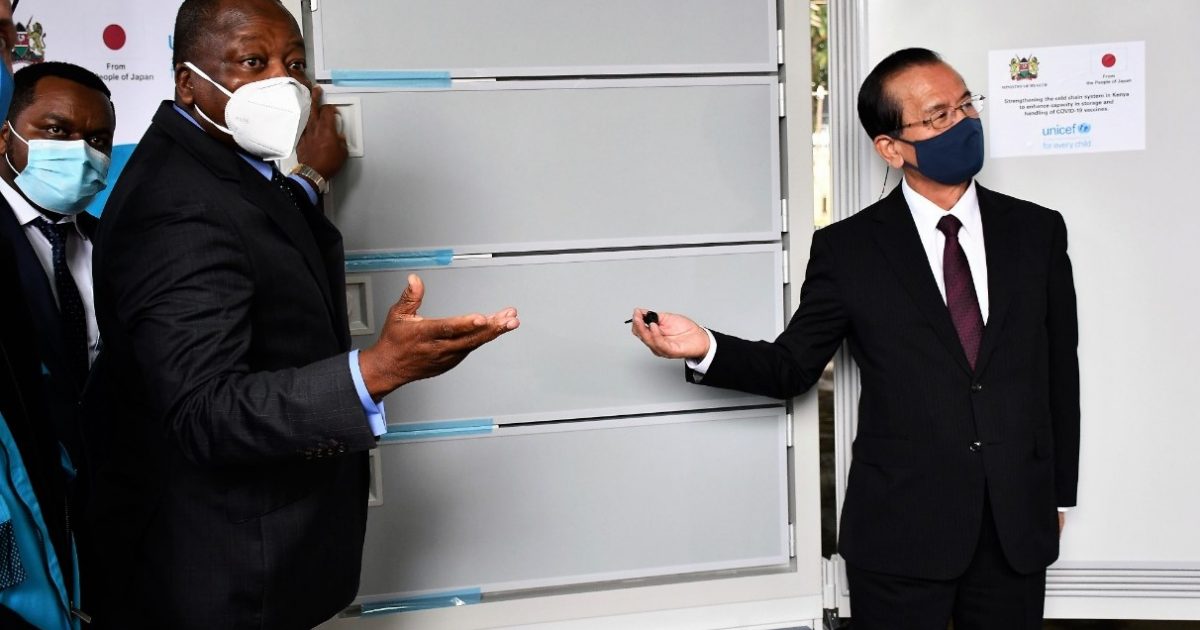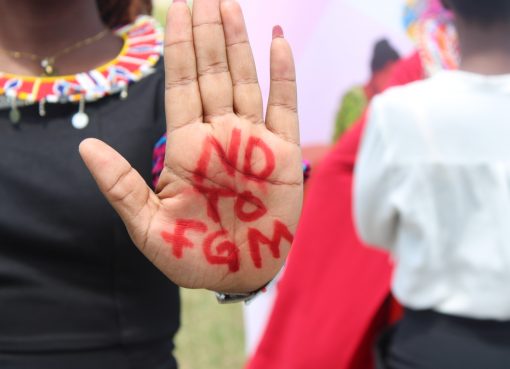The government of Japan has donated 12 ultra-cold chain freezers with a storage capacity of 3 million doses.
Health Cabinet Secretary Mutahi Kagwe has said this will see the deployment of the Pfizer vaccine and any other future vaccines that may require ultra-cold chain temperatures not be a challenge at all.
Speaking at Afya house when receiving the equipment Tuesday, the CS said that three of these freezers will be placed at the Central Vaccine Stores in Kitengela, while the rest will be distributed to the nine regional stores in Nairobi, Eldoret, Kisumu, Mombasa, Nakuru, Nyeri, Meru and Kakamega.
For the Regional Garissa store, the CS explained that UNICEF is supporting the delivery of a specialized deep freezer that is suitable for the area and hoped this will also be received soon in order to serve the interests of the north-eastern part of the country.
He noted that during transportation from the central to regional stores, these vaccines require to be transported at minus 70 degrees and this will be done using special insulated devices known as soft boxes, which maintain ultra-cold chain temperatures using dry ice.
“We are therefore very delighted that the United Postal Services Foundation has also kindly donated 15 soft boxes which will enable transportation of the vaccines, to all the regional stores,” he said.
From the regional stores, Kagwe explained that these vaccines will be transported to selected vaccination posts at temperatures of plus 2 to plus 8 degrees as is common with other vaccines.
In the deployment of Pfizer vaccines, he noted that the government is aware that once thawed, they cannot be refrozen and when stored at plus 2 to plus 8 degrees they must be used within 28 days.
This, the CS said, places a huge responsibility on officers both at the National and County level to make sure that the vaccines are administered as soon as possible to avoid loss of potency.
“We must all take this responsibility seriously as any challenges not properly addressed would unfortunately undermine our vaccination efforts and jeopardize our objective to meet targets set by the President of vaccinating 10 million people and the entire adult population by the end of next year,” he said.
Kagwe said that the quality and success of the country’s vaccination program depends on the integrity of the cold chain.
Currently, he explained that the National Vaccine store has a total of eight (8) cold rooms, with a net capacity of 130M3 for positive temperature cold storage (2 8°C), and 2 freezer rooms, with a net capacity of 14 M3 for negative temperature cold storage (-20°C).
This capacity, he said is sufficient for deployment of vaccines requiring the +2°C to 8°C / -20°C of cold storage, with a quarterly vaccine delivery schedule to the national and regional vaccine stores.
We must however recognize that about 15 million doses of vaccines used for childhood immunization, also depend on this infrastructure and hence the need to expand it.
The Ministry of Health will be expanding and strengthening the cold chain facility at a cost of Sh900 million with World Bank Support, he added.
The strengthening will include, establishment of 25 new county vaccine stores, Improvement of technical capacity in 36 sub-county stores and Expansion of storage capacity at 1,177 facilities across the country.
These efforts, Kagwe said, will ensure that the government do not interrupt the childhood immunization program, even as the country scales up our Covid-19 vaccination program.
The CS thanked the Government of Japan for the support saying the capacity greatly enhances the deployment efforts.
Japan Ambassador to Kenya Ryoichi Horie said that Covid-19 has changed the lifestyle of all in the global fight against the pandemic.
He noted that in the phase of vaccination proper storage and good management systems are very critical in distribution of vaccine.
“We acknowledge the government of Kenya tirelessly working to boost vaccination drives and promote confidence in the public. This cold chain storage equipment will support these efforts,” he said, adding that the procurement of the cold chain is timely as a step in the fight against the pandemic.
Amb. Horie assured the government of Japan’s commitment in cooperating with Kenya to distribute vaccines until each and every person has received their doses.
By Wangari Ndirangu




